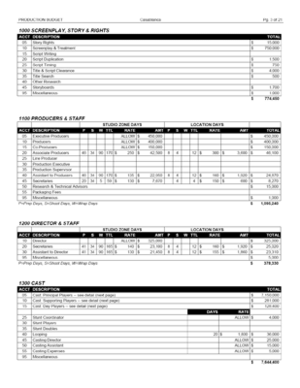"Good fences make good neighbours."
– Old Proverb
Fences
allow you to protect what's valuable to you. They also allow you to control who
and what enters your space.
In the
workplace, setting boundaries helps establish a productive work environment.
You – and everyone you work with – have different values, needs, and beliefs
about what's right. These differences can lead to conflict, resentment, anger,
anxiety, and stress.
Does your colleague like last-minute deadlines and working under pressure, but you like
to plan ahead and have everything finished early? You can do things your colleague's way (and end up stressed) – or you can recognize what you need to
be effective, and then ask for it.
Do you
have a colleague who yells and screams when she's under stress? Does this behaviour upset you? Then you owe it to yourself to say something to her, so
that she understands the negative impact she's having on other people.
This is
called managing your boundaries. It's an assertive and responsible way to make
sure others respect your needs, while you respect theirs.
By taking
the time to understand and map your boundaries, you will.
- Be able to say no to
requests that conflict with your needs.
- Better understand how to
deal with conflict, directly and assertively.
- Increase your personal sense
of empowerment.
Boundary
management is essentially a three-step process:
- Becoming aware of your needs.
- Setting your boundaries.
- Monitoring your boundaries.
Step One: Become Aware of Your Needs
- Do you sometimes doubt that
you have a right to ensure your needs are met?
- Do you avoid speaking up for
yourself on a regular basis, and do you let things go, and not react to
bad situations?
- Do you tend to avoid
conflict? Do you let others have their way or make decisions for you?
- Do you agree to do things
that you really don't want to do – and later regret it?
These are
all signs that you don't actively try to have your needs met – and that you
haven't established your boundaries.
Some of
us seem to have the persistent and questionable belief that to get along with
others, we need to give much more than we take. We may think that asking for
what we want is selfish, that it's not good team behaviour. So we may say things
like "Whatever you choose will be great!" and we may agree to do
things we don't want to do, and shouldn't have to do.
This is a
great strategy for avoiding conflict and confrontation with others.
Unfortunately, it can create a destructive conflict inside of you. You can
build up anger and tension – because you give away your power and you're not
getting what you need. Eventually, this tension and anger can become too great,
and you won't be able to tolerate it anymore.
It's far
better to become aware of what you need, and then to develop strategies to
ensure that your needs are met appropriately.
Whether
or not you acknowledge your needs, they're often met anyway – though not
necessarily in a good way. For example, if you need structure and you're not
getting it, you might create charts and graphs and schedules for everything –
but your team mates may hate this. If you need to be liked, you might avoid
conflict at all costs – but this could allow people to make poor decisions.
It's not constructive to try to satisfy your needs in this way – and it may
lead to much greater problems in the long run.
The most
obvious way to become aware of your needs is to think of times when you felt
angry, tense, or resentful – or times when you were embarrassed by your
reaction to something. These can be signs that your needs were not met.
Remember
when you experienced these feelings and had these reactions, and ask yourself
these questions:
- What need or value was not honoured by others?
- What did you really want?
Then
complete the following phrases:
- I have a right to ask for
________, because I need ________.
- It's OK to protect my time
by________, because I need ________.
- I will not allow others
to________, because I need ________.
Step Two: Set Your Boundaries
When you
understand what you need to be happy, that's only the first part of the
process. You must also let others know what you need. Your colleagues, peers,
and friends can't always figure this out on their own. You have to tell them
(and remind them) of your needs and your boundaries.
Follow
these guidelines:
- Be assertive – Communicate assertively.
Tell people what you need, and work with them to reach solutions that can
satisfy everyone. Without assertiveness, you risk allowing other people's needs
to come first.
- Learn to say no, when
appropriate –
If you say yes to everything, you risk not having enough time to do
anything properly. You also risk not working on the things that are truly
important. Use an urgent/important sift to determine your priorities and
understand your roles and responsibilities.
- Use effective time
management – A
big part of setting boundaries is making time for your work and time for
personal interests. When you put all your energy into only one thing, you
risk burning out and not enjoying life. With good time management, you can get things done more
efficiently. . This can help you work less and play more!
- Focus on your objectives – Getting what you want
takes commitment. Setting boundaries isn't always easy, so maintain a
strong focus on your overall objectives.Good goal setting Strategies will help you achieve this.
Step Three: Monitor Your Boundaries
When you
start to set boundaries, it will help you enjoy an immediate sense of
empowerment and control. It's a great feeling – knowing that you can ask for
what you need, and then get it.
It's also
important that boundaries are not completely fixed or unchangeable: Sometimes
life needs a certain amount of flexibility. Rigid, inflexible boundaries may
get in the way of your needs – because your needs can change, depending on the
situation.
If you're
very disciplined with your time, this likely improves your productivity. But if
a project needs you to work well with a colleague, you may not want to end your
meeting with him at the scheduled time if you need to build that relationship.
Make sure
the boundaries you set are appropriate, and be willing to make changes,
depending on the situation.
Also,
keep in mind that while you may set up an imaginary fence around you, this
doesn't mean that you don't have any responsibility for what happens outside
your boundaries. You can say no when you're asked to take on more work, but you
can still help find someone else to do that work. You can delegate a task to
someone, but you're still responsible for the outcome.
Remember,
boundaries are a way to help you work more effectively with others. They're not
meant to keep you completely separate and apart from others.
Thanks to Mind Tools
For more great careers advice and support on how to get paid more, promoted faster and feel more satisfied go to www.maryhopecareersuccess.com




















